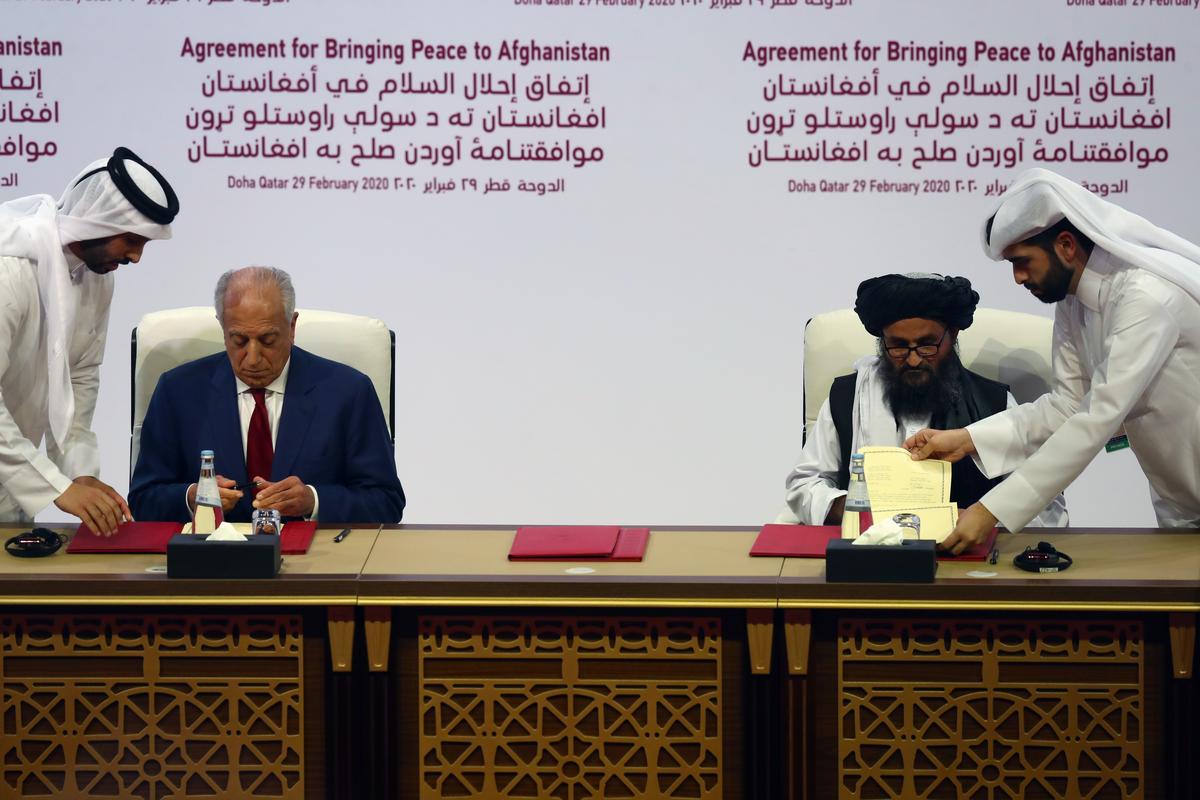KABUL/DOHA (Reuters) – The United States signed a deal with Taliban insurgents on Saturday that could pave the way toward a full withdrawal of foreign soldiers from Afghanistan and represent a step toward ending the 18-year-war in the nation.
But while the agreement creates a path for the United States to gradually pull out of its longest war, many expect the talks to come between the Afghan sides may be much more complicated.
The deal was signed in the Qatari capital Doha by U.S. special envoy Zalmay Khalilzad and Taliban political chief Mullah Abdul Ghani Baradar, with U.S. Secretary of State Mike Pompeo on hand to witness the ceremony.
U.S. Defense Secretary Mark Esper called the accord a good step but just the beginning.
“Achieving lasting peace in Afghanistan will require patience and compromise among all parties,” said Esper, who met Afghan President Ashraf Ghani in Kabul where they announced a joint declaration in parallel to the U.S.-Taliban accord.
The United States said it is committed to reducing the number of its troops in Afghanistan to 8,600 — from the current 13,000 — within 135 days of signing the deal, and working with its allies to proportionally reduce the number of coalition forces in Afghanistan over that period, if the Taliban adhere to their commitments.
A full withdrawal of all U.S. and coalition forces would occur within 14 months of the deal getting signed, if the Taliban hold up their end of the deal, the joint statement said.
“We are working to finally end America’s longest war and bring our troops back home,” said U.S President Donald Trump in a White House statement.
The accord represents a chance to make good on a longstanding promise to get troops out, as he seeks re-election in November. But security experts have also called

